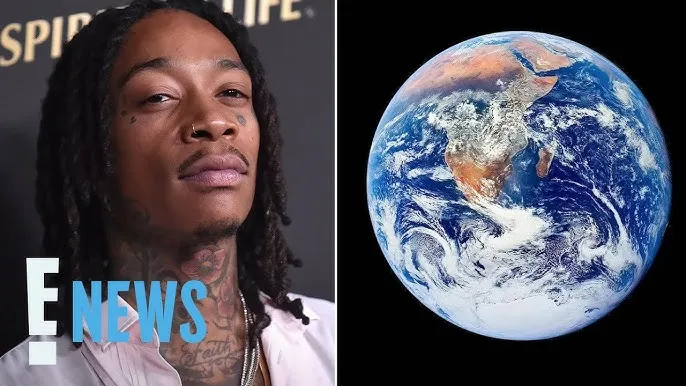Wiz Khalifa Challenges Conventional Wisdom: The Flat Earth Theory
In an age where scientific understanding is often taken for granted, the resurgence of the flat Earth theory has sparked considerable debate. Renowned rapper Wiz Khalifa recently entered the dialogue, sharing his perspective on why he believes the Earth may not be the globe that decades of education have taught us. In this article, we will delve into Khalifa’s views, examine why some rappers are drawn to this controversial belief, and offer insights into the broader implications of these claims.
Wiz Khalifa’s Views on the Flat Earth Theory
During a recent podcast appearance, Khalifa raised eyebrows when he suggested that the Earth might be flat. “I’ve seen some things that make me think maybe the Earth is flat,” he said. His comments were met with a mix of skepticism and intrigue, prompting discussions on social media platforms about the rapper’s motivations and the potential ramifications of such claims.
Khalifa went on to elaborate on his thought process, explaining that much of what we perceive as reality is influenced by societal narratives. He theorized that the way we experience the world through technology and media contributes to a distorted understanding of aspects of reality, including our planetary existence.
Why These Rappers Believe in the Flat Earth Theory
Khalifa is not alone in expressing skepticism about the shape of the Earth; a handful of other hip-hop artists have also voiced similar beliefs. The question arises: why do these influential figures gravitate toward such seemingly outlandish theories? Several factors contribute to this trend:
1. Critical Thinking and Questioning Authority
The hip-hop community has a long history of questioning societal norms and authority figures. Rappers like Khalifa often utilize their platforms to challenge mainstream narratives, prompting fans to think critically about what they are told. This critical approach can lead to exploring unconventional theories, including the flat Earth.
2. Personal Exploration of Knowledge
Many artists in the rap industry are lifelong learners, self-educating through books and conversations with others. This desire for knowledge can lead to the exploration of alternative concepts. For some, the flat Earth theory presents an avenue to challenge accepted scientific ideas and delve deeper into their understanding of the universe.
3. Social Media Influence
The influence of social media cannot be overstated. Platforms like Twitter and Instagram enable users to easily share controversial ideas. When prominent figures like Khalifa discuss flat Earth theories, it can create a viral moment that encourages others to consider and discuss these topics.
4. Cultural Rebellion
For some rappers, embracing the flat Earth theory can be seen as a form of cultural rebellion. By aligning themselves with fringe beliefs, they challenge listeners to reconsider their views and question the status quo. This rebellious spirit resonates with fans who appreciate authenticity and the pursuit of unconventional wisdom.
The Ripple Effects of Controversial Beliefs
When influential figures publicly endorse controversial theories, it can result in significant ripple effects throughout society. The flat Earth theory, while long-discredited by scientific evidence, takes on new life when embraced by celebrities.
Many fans look up to rappers such as Wiz Khalifa, viewing them as role models. When these artists espouse unconventional beliefs, it can inspire followers to adopt similar views, regardless of the scientific validity behind them. This fandom-driven advocacy can lead to the proliferation of misinformation.
Scientific Refutation of the Flat Earth Theory
Despite the intrigue surrounding the flat Earth theory, it is essential to look at the overwhelming scientific evidence supporting a spherical Earth. From centuries of astronomical observations to modern satellite imagery, the evidence against a flat Earth is extensive:
1. Gravity and Shape
One of the primary reasons the Earth is spherical is due to gravitational forces. Objects with mass gravitate towards one another, forming a roughly spherical shape as they pull together. This is observable in celestial bodies across the universe, all of which are round due to gravity.
2. The Horizon and Viewpoints
When standing at a high vantage point, the horizon appears curved. Additionally, ships disappearing from view as they traverse the horizon represents a timeless example of the Earth’s curvature. Regardless of one’s vantage point, these observations can be consistently replicated.
3. The International Space Station (ISS)
Live feeds from the ISS provide real-time visuals of Earth’s curvature. Astronauts aboard the station also provide firsthand accounts of the spherical nature of our planet, as they observe it from space.
The Role of Philosophical Inquiry
Understanding the reasons for the resurgence of flat Earth beliefs goes beyond mere scientific discourse. It invites philosophical inquiry into the nature of belief, trust in authority, and the pursuit of knowledge. The tension between scientific evidence and personal belief systems presents an opportunity for deeper discussions about critical thinking.
1. The Nature of Truth
Critical thinkers often grapple with the nature of truth. As Khalifa pointed out, environments influenced heavily by media can create an alternate version of reality. Exploring these dimensions fosters fruitful conversations about how the idea of truth can morph and adapt according to individual and collective perceptions.
2. The Role of Education
The flat Earth debate also thrusts education into the spotlight. It calls for a reevaluation of how scientific information is presented to the public. There is a growing need to enhance scientific literacy, enabling individuals to discern fact from fiction.
Conclusion: A Challenge to Common Beliefs
Wiz Khalifa’s foray into the world of flat Earth theories serves as a reminder of the complexities surrounding belief, knowledge, and trust in authority. The discussion surrounding flat Earth theories invites fans and the general public to engage with critical thinking, expanding their perspectives, and contemplating new ideas.
This phenomenon raises important questions about the role of influencers in shaping societal beliefs and emphasizes the power of celebrity culture in discussions about critical scientific matters. While Wiz Khalifa’s thoughts may challenge conventional wisdom, they also highlight a broader cultural dialogue that transcends music and entertainment, allowing us to explore our understanding of reality itself.







